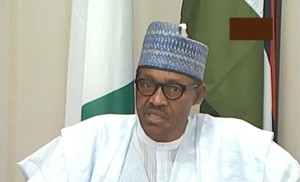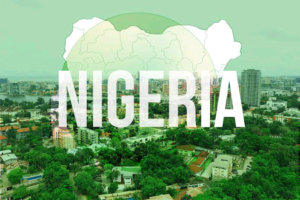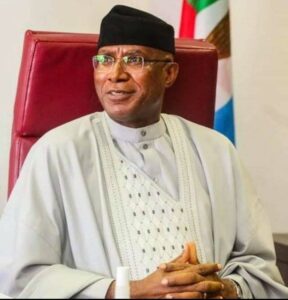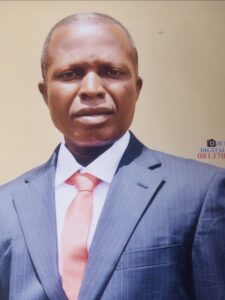FOR NIGERIA’S PROGRESSIVE FUTURE – THE URGENT NEED FOR THE BUHARI GOVERNMENT TO REVIEW AND IMPLEMENT THE 2014 NATIONAL CONFERENCE REPORT
By Zik Gbemre
Recently, many Nigerians were reportedly shocked by reports quoting President Muhammadu Buhari as saying he would want the report of former President Goodluck Jonathan’s National Conference go ‘into the so-called archives’. Even the former Secretary to the Government of the Federation, Chief Olu Falae, had recently come out and insisted that the country’s future and progress would depend on implementing some of the recommendations of the National Conference document. And as relevant stakeholders in the polity have in recent times, been advising President Muhammadu Buhari to commence the process that will lead to implementation of the 2014 National Conference as a way to restructure Nigeria, we consider it equally necessary to join voices to strongly call the Presidency to first, thoroughly review the said National Conference Report and take prompt steps toward its implementation by forwarding same to the National Assembly for appropriate passage.
With unfounded reports that the said National Conference Report might be thrown away by the Federal Government, we consider it expedient to make this call. Perhaps, there is need for the Presidency to understand why the National Conference came to be in the first place.
Some couple of years ago, it became more evident that the majority of Nigerians no longer believed in the structural arrangement of the country and the way things were going. Therefore, there was the need to come together to fashion out a way of living with one another. There is no doubt that a country that has become as fractious as Nigeria needed to put its acts together. It is not for nothing that the country is bedeviled by challenges, some of which touch dangerously on its ‘unity’ and ‘oneness’. It was against this backdrop that in his October 1, 2013 Independence Day broadcast that former President Goodluck Jonathan told Nigerians he would convene a conference to provide a platform for a “national conversation.” If there was anything we could applaud the immediate past Jonathan administration for, it would be the fact that a somewhat holistic National Conference was conducted and they have a Report to show for it. Though, the said national discourse had its flaws and was overpriced and executed with so much waste of public funds, however, at the end of the day a lot was achieved.
And indeed, the National Conference, which was a convergence of various delegates representing the interest of its people to highlight and address a whole lot of issues that have been stunting the growth and development of the nation, was a welcome development. And we, like many other Nigerians, were happy with some of the resolutions and recommendations of the Confab which include: creation of new States, Part-time Legislature for our lawmakers, the adoption of a Modified Presidential System of Government, the upward review of the derivation/revenue sharing formula, two-tier police system, independent candidacy, making Chapter II of the extant constitution justifiable, and a ban on State funding of pilgrimage and religious matters and others. With such overwhelming reach on national issues and the way forward, it will therefore be foolhardy and a very unpatriotic for anyone, group of persons and even the Presidency to disregard, negate the contents of the said National Conference Report.
Agreed that to a large extent, the now ruling government of the All Progressive Congress (APC) can be said not to be ‘actively’ involved in the said 2014 National Conference, but the fact remains that the conference was a gathering of relevant stakeholders of the Nigerian polity that represented the interests of their people and as such, whatever was the outcome of the Confab is worth being given the needed attention for prompt implementation. The proposition some few months ago, by a group that goes by the name Northern Reawakening Forum (NRF) to President Muhammadu Buhari that the APC-led government should ignore, wholesale; the recommendations of the 2014 National Conference Report is short-sighted and unhelpful to the cause of a better Nigeria. And coming from such persons who have served on national platforms as Federal lawmakers and heads of Federal agencies, it is regrettable, to say the least, that the idea canvassed betrays a narrowness of mindset and diminishes such men and women who, while in public office, once swore to ‘preserve the Objectives and Directive Principles of State Policy as contained in the Constitution.’ It is even more disturbing that the spokesman for the NRF position is a certain Mohammed Kumalia who was co-chairman of the Conference’s Committee on Political Restructuring and Form of Government. If the 2014 Conference Chairman, Hon. Justice Idris Legbo Kutigi is to have believed that ‘all our resolutions were adopted by consensus [and] not once did we have to vote or come to a division’, then how, as a matter of honour, does Mr. Kumalia justify his new posture? Where was the courage of his conviction while he participated?
To claim that the Conference was convened by former President Goodluck Jonathan to achieve a hidden agenda is even uncharitable to the many very busy, serious minded and respectable conferees who, by the implication of that opinion, stand accused as willful collaborators in such an agenda. Jonathan’s 52-point inaugural speech to that Conference dwelt extensively on the justification for the conference. He said it was ‘being convened to engage in intense introspection about the political and socio-economic challenges confronting our nation and to chart the best and most acceptable way for the resolution of such challenges in the collective interest of all the constituent parts of our fatherland.’ He noted that these challenges ‘range from form of government, structures of government, devolution of powers, revenue sharing, resource control, state and local government creation, boundary adjustment, state police and fiscal federalism, to local government elections, indigeneship, gender equality and children’s rights, amongst others.’ THESE ARE THE VERY ISSUES THAT HAVE BEEN THREATENING THE UNITY AND DEVELOPMENT OF THE NATION. ‘It makes sense’, he continued,‘ … that as the challenges before us evolve, we must be constant and proactive in our search for fresh solutions [instead of proffering] yesterday’s solutions to today’s problems.’ Pray, which genuine patriot will fault these motives? The then president concluded by saying that ‘Goodluck Jonathan has no personal agenda in convening [the conference].’ That this may be or may not be true is a matter of opinion and ‘motive hunters’ may choose to cling to their position.
But the point must be taken that the Conference Chairman and former Chief Justice of Nigeria, Hon. Justice Idris Legbo Kutigi said on the occasion of the submission of the conference report: ‘Let me state here categorically and with the fear of Almighty Allah in my heart that not once did [President Jonathan] interfere or dictate to us in the course of this Conference.’ And Kutigi, it must be said, ranks as one of the most respected citizens of Nigeria who hails from the northern part of the country.
The 2014 National Conference, of course, took off on a widespread note of suspicion as to the motive of the then government and skepticism about the purpose that another Conference could ever serve after several others that had been held at great monetary and other costs to the nation. The then opposition APC as a party refused to participate in the argument that it was ill- timed and opportunistic. But it was sensible that, it did not object to its members doing so on personal recognition. At the cost of about N10 billion, four and a half months of hard thinking, hard bargaining, lengthy, complex, often-times heated discussions, arguments and immense paperwork by 494 men and women, mostly of no mean stature, the Conference produced over 10,000 pages of 22 reports and annexure. They made over 600 recommendations for the improvement of the political, economic and social structures and the overall regeneration of the country.
The fact is that no one can wish away this conference as if it never happened. Whereas the report is not perfect, just as the authors are not, it is as good as any document can be to work with in the quest for a new Nigeria. And as noted in an editorial, the APC government should, for at least two reasons, not shy away from borrowing and implementing ideas from it. One, the act of governance is a continuum and it stands to reason that a well-meaning government should continue from where its predecessor stopped, those policies and programmes that further good governance. Two, it is a constitutional declaration that the primary purpose of government is the security and welfare of the people. Therefore, any and every government, irrespective of party coloration, is constitutionally bound to implement ideas and sustain measures that benefit the country and its citizens. For the sake of Nigeria and its people, besides the tons of public money expended, the APC-led government must do right to Nigerians and review and implement that report. Indeed, some of the recommendations like devolution of powers are in line with promises in the APC manifesto. In fact, some of the APC-controlled States have, as recommended by the Conference, even stopped funding pilgrimages.
According to the reports, the NRF called for a retreat supposedly to discuss “Rebuilding a Safe, Secure and Economically inclusive Northern Nigeria.” That is a great idea, but the time has come that persons who claim leadership roles at any level must broaden their thinking and perspectives and, in this federal republic, adopt a pan-Nigeria appreciation of issues. There is absolutely good reason to rebuild the northeastern part of Nigeria devastated by the Boko Haram insurgency. But no right-thinking person would, as if the two propositions are mutually exclusive, use it as a justification for jettisoning the wide-reaching recommendations of the 2014 National Conference. As long as the ‘Nigeria Project’ remains an unfinished business, so long will there be a need to tinker with and improve it, and a conference that generated such great ideas as the 2014 Conference report is of great value to such end.
While the freedom of association and expression is guaranteed under the law, President Buhari must be wary of self-serving groups, ethnic, religious, regional, and any other type, which offer unsolicited propositions that clearly, or subtly, undermine the pan-Nigerian vision captured in the spirit and letter of the Nigerian constitution, ridicule the Buhari government’s contract with the Nigerian people as enunciated in both the constitution and the manifesto of the APC and, finally, diminish the President’s own pronouncements and stature before a nation that reveres him.
It is funny how most of the opposition against the Confab resolutions and Report are coming from stakeholders from northern Nigeria. It will be recalled that the National Conference, in considering the report of its 20 committees, had a smooth sail on 19 reports, but the issues of local government administration, state police and derivation tore the delegates apart. Northern delegates were reported to have bickered over the desirability of the recommendation, passed through a voice vote, to have local government administration transferred from the exclusive list to the residual list. They also expressed misgivings over the resolution; also passed through a majority voice vote, to allow for the establishment of state police “for states that want it” some of them also expressed concern over the resolution to create additional 1 state, with a special one for the southeast zone. As the conference rose, most of the northern delegates vowed to ‘fight’ to ensure that the report does not see the light of day. Even before the conference adjourned, the Northern Delegates Forum (NDF) had through threats and subtle blackmail attempted to halt the adoption of some of these decisions by the conference.
At a point, it was obvious that the northern delegates were not happy that they were unable to frustrate efforts by the conference to alter “the status quo”, especially as it affects resource control and the structure of governance. But they must realize that the national conference can best be described as a gathering of very important different strata of the Nigerian society. It is assumed that the various delegates of the National Conference were representing the interest of its people, which they consulted to harmonize issues they wish to bring to the conference. We therefore believe there is need for all concerned to mutually respect and treat one another equally, irrespective of which tribe, ethnicity, religion, geo-political entity one belongs to. We need to respect one another views, and in this case, there is need to respect the views of the people of Southern Nigeria whose oil and gas resources have been the rallying-point of our national economy from which other states have been benefiting and feeding from. We believe in the ‘unity’ and ‘oneness’ of the country known as Nigeria, irrespective of our differences. But that should not mean we should forget history on how the ‘broad day robbery’ known as derivation formula, has been used to deprive the Niger Delta region of what is rightfully theirs. Let us not forget that it is the lands, rivers, streams, air and the entire environment of the Niger Delta region, plus their socio-economic environment, that have been bearing the brunt and adverse impacts of the extractive industry since oil and gas exploration activities started over 50 years ago.
We recall that during the end of the Confab, there were reports that the Northern delegates subtly tried to scuttle the outcome of the conference through the National Assembly, and we rightly advised then that there is need for all concerned to apply caution, as such moves have the propensity to stir up unanticipated crises and further worsen the existing divide between Southern and Northern Nigeria. The same semantics and tactics are still playing out with the above stated moves by the NRF. This is not good for the nation’s unity. The fact that our Nigeria Federalism is skewed and has not been what is expected of a true Federal State does not mean the ‘status quo’ should remain. There is need for the right things to be done, and for the right changes to be made. If we are to live together as one nation, then there is need for some level of compromise. The so called status quo cannot remain. The proposed changes are inevitable and are long overdue, hence the need for the Presidency to review and promptly implement the content-recommendations of the 2014 National Conference.
Before now, we have noted that it will be foolhardy and absolutely ‘unwise’ for constitutional and legislative steps not to be taken to ensure that all decisions/resolutions and outcomes of the National Conference are implemented to the latter. Hence, we had advised that what the National Assembly can do for Nigerians is to enact a law suggesting that whatever will be the outcomes/resolutions/decisions of the National Conference, such should be binding on every dick and harry in the polity. They should also make the necessary amendments in the nation’s Constitution to give room for a referendum in this regard. This is what we are hoping the present government would initiate steps to start addressing.
Let us recall that a cross-section of Nigerians of all walks of life has urged the then Federal Government to subject the outcome of the National Conference to a referendum. A nationwide opinion survey of personalities conducted then indicated that most respondents preferred ratification of conference decisions by referendum rather than the Presidential or National Assembly endorsement. It would be recalled that former President Goodluck Jonathan said while inaugurating the conference that its outcome may be subjected to a referendum.“If the outcome of the National Conference is to be binding on Nigerians, the people must have a say in the final outcome,’’ said a Sokoto-based lawyer, Mr. Ferdinand Okotote. According to him, such an action would legitimize the decisions of the conference. Though, some stakeholders were of the opinion that asking the National Assembly to ratify the conference decisions would be less expensive and bear no cost to the economy, the fact is that “the people”, who are the reason for the conference in the first place, should be given that opportunity to make their input through a referendum before the outcomes of the conference will be binding on all.
There may be justifiable reasons to be cynical and incredulous over President Goodluck Jonathan’s decision to convene a national conference, but there is no doubt that the country is in an unhealthy state that needs urgent redress. And having regard to the country’s complexities – in terms of population, multiple ethnic nationalities, languages, diverse culture, interests, and various natural resources located in different places – a more acceptable way to bring about the redress is to engage in a discussion that will involve all stakeholders, which a referendum provides. The delegates in the ongoing National Conference are just a ‘tiny speck’ of the whole population when it comes to deciding the future of the country. Democratic governance has not delivered the desired dividends. Nigerians remain largely poor; in fact, among the poorest in the world. Yet, there was a time when the country, indeed worked; when the federating units competed fairly for development; when the states were economically vibrant and had no need to depend on the central government for financial assistance; and the Federal Government itself were less attractive, compared with the all-powerful entity that it subsequently became, to the detriment of the states. Taking the above steps will prevent the recurrence of the failures we have witnessed in the past when it comes to national dialogues.
Succinctly, conducting a referendum towards legitimating the contents of National Conference Report should be part of the ‘review steps’ President Buhari should take towards implementing the report. The crux of the matter here is that the Presidency should not wish-away all the efforts made towards having a Confab in 2014 by refusing to do anything that would lead to the implementation of the report recommendations. With the recent reawakening of Niger Delta militants on the one hand, and the ever-present Boko Haram threats in another hand, and of the course, the increasing security concerns created by Fulani Headsmen and Farmers in different parts of the country, there is an expedient need for the President Buhari Government to take a closer look at the 2014 Confab Report, which addressed a lot of these concerns, and take suggested steps towards its implementation. This will be in the best interest of Nigeria’s progressive movement.
Zik Gbemre, JP.
National Coordinator
Niger Delta Peace Coalition (NDPC)




